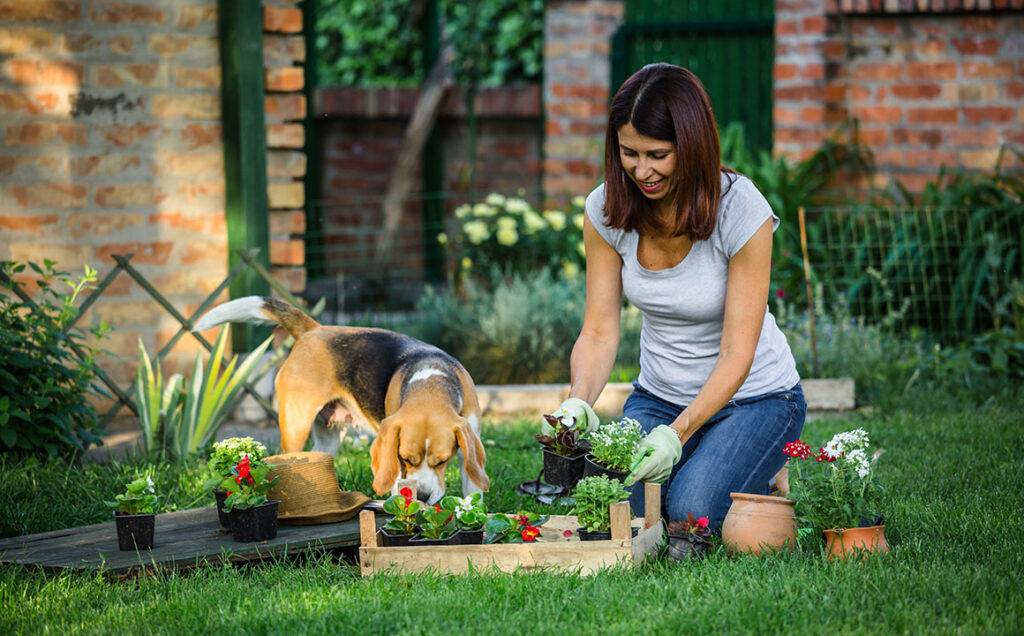We’re almost at the end of 2023, which means it’s the perfect moment to reevaluate our gardening practices and bid farewell to habits that hinder rather than nurture our green sanctuaries. If you’re a gardening enthusiast, you know that the learning process never really stops. To help you with that process, we’ve created this guide to help you identify and address common bad gardening habits that are best left behind in the old year. Hopefully, this will pave the way for a more fruitful and harmonious gardening journey.
Neglecting Soil Health
One of the key bad gardening habits to abandon is neglecting soil health. Healthy soil forms the bedrock for thriving gardens. Repeatedly planting without enriching the soil with organic matter, proper nutrients, or allowing it time to rejuvenate leads to depleted soil, hindering plant growth. Commit to prioritizing soil health through composting, cover cropping, and adopting sustainable soil management practices.
Overcrowding
Overcrowding plants is a common habit that stunts their growth and invites disease. A lack of adequate space restricts air circulation, leading to increased humidity and vulnerability to pests and diseases. By sticking to proper spacing guidelines, you will give your plants enough room to thrive and live up to their full potential. By respecting their personal space, you foster healthier growth and minimize the risk of plant stressors.
Ignoring Pest and Disease Prevention
Turning a blind eye to pest and disease prevention is a habit that can wreak havoc on a garden. Instead of reacting to problems as they arise, it’s also important to take some proactive measures. Regularly inspect plants for signs of pests or diseases, and implement preventive measures such as crop rotation, companion planting, and practicing good garden hygiene. Prevention is always better than a cure in the world of gardening.
Overwatering and Underwatering Woes
Watering is another huge deal when it comes to the health of your plants. The tendency to overwater or underwater plants often stems from a lack of understanding of their specific water needs. Overwatering suffocates roots by depriving them of oxygen, while underwatering leads to stress and stunted growth. That’s why it’s so important to do the necessary learning and inform yourself about the water requirements of your plants. Stay mindful, check soil moisture levels, and adjust watering schedules accordingly.
Skipping Soil Testing and Amending
Gardening without understanding the soil’s condition is akin to navigating blindly. Neglecting regular soil testing deprives plants of essential nutrients they need to flourish. Make soil testing a routine practice and amend soil based on test results. Tailoring soil amendments to address deficiencies ensures plants receive the necessary nutrients. And this will make them healthier and happier in the end.
Neglecting Tools and Garden Maintenance
A disorganized or neglected garden toolkit often leads to frustration and inefficiency. Cultivate the habit of regular tool maintenance and organization. Clean tools after use, sharpen blades, and organize equipment for easy accessibility. Likewise, staying on top of garden maintenance tasks such as weeding, pruning, and deadheading prevents small issues from escalating into larger problems.
Underestimating the Power of Patience
Impatience often leads to hasty decisions or unrealistic expectations in gardening. The habit of expecting immediate results or giving up too soon can hinder the gardening journey. Embrace patience and understand that gardening is a process that requires time, observation, and nurturing. Cultivating patience fosters a deeper connection with nature and yields more fulfilling and sustainable garden outcomes.

